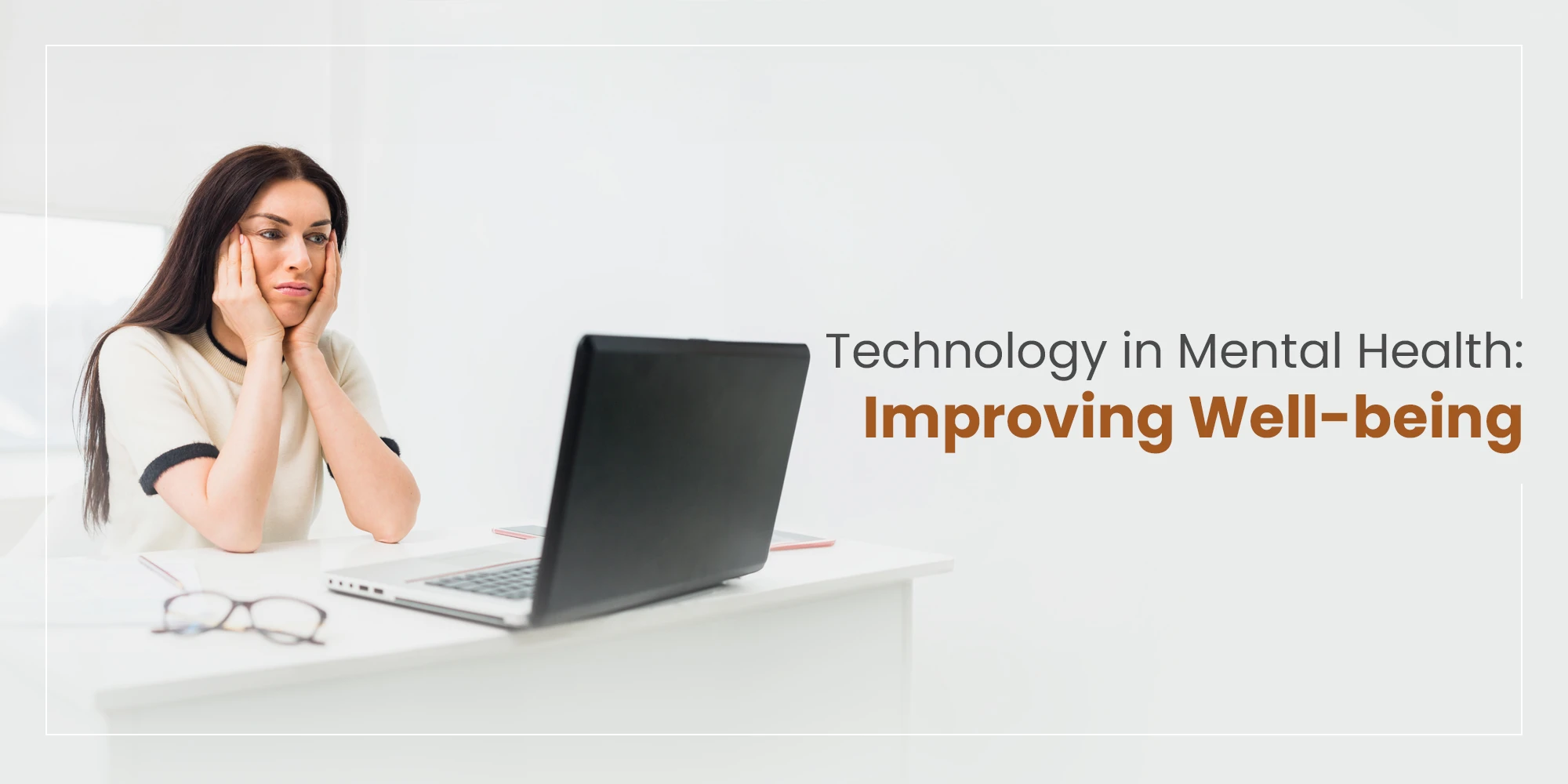Technology has transformed various aspects of our lives, and mental health treatment is no exception. From mobile apps to sophisticated data collection tools, technology is opening new avenues for mental health care, providing more accessible and efficient ways to manage mental well-being. In this blog, we have discussed how technology is used in mental health treatment or management.
How is Technology Used for Mental Health Treatment?
Mobile devices like smartphones and tablets have transformed mental health care, offering new methods for accessing help, monitoring progress, and understanding mental well-being. Simple yet effective tools, such as the 988 Suicide and Crisis Lifeline, allow individuals to call, text, or chat for support anytime. More advanced applications use built-in sensors to track behavior patterns and alert users to seek help before a crisis occurs.
Mental health apps vary in complexity and purpose. Some are designed to enhance memory or cognitive skills, while others facilitate connection with peer counselors or healthcare professionals. The rapid development of mental health apps has led to a vast array of options available on platforms like iTunes and Android, though this growth also brings uncertainty due to limited industry regulation and insufficient data on app effectiveness.
Pros and Cons of Mental Health Apps
Mental health apps offer numerous advantages, including:
- Convenience: Treatment can be accessed anytime and anywhere, making it ideal for those unable to attend in-person appointments.
- Anonymity: Users can seek help privately from their homes.
- Introduction to Care: Apps serve as an initial step for individuals hesitant to pursue traditional mental health care.
- Lower Cost: Many apps are free or cheaper than traditional therapy.
- Greater Outreach: Apps extend mental health services to remote areas and during emergencies.
- Interest: Apps can make therapy more engaging and accessible.
- 24-Hour Service: Continuous monitoring and intervention support.
- Consistency: Standardized treatment programs for all users.
- Support: Apps complement traditional therapy, extending support beyond sessions.
- Data Collection: Apps gather valuable data on users’ behaviors and patterns.
Despite these benefits, there are significant concerns:
- Effectiveness: Many apps lack scientific evidence supporting their efficacy.
- Privacy: Ensuring user data protection is crucial given the sensitivity of mental health information.
- Guidance: Without industry standards, evaluating app quality is challenging.
- Regulation: There is a need for regulatory oversight of mental health technology.
- Overselling: Some apps may promise more than they deliver, potentially deterring users from effective therapies
Current Trends in App Development
Innovative app development focuses on various mental health concerns, from smoking cessation to managing anxiety and depression. Key trends include:
- Self-Management: Apps that allow users to input data and receive feedback, such as setting medication reminders or tracking stress levels.
- Cognitive Improvement: Apps designed to enhance thinking skills, particularly for those with serious mental illnesses.
- Skill Training: Game-like apps that teach new coping strategies or cognitive skills.
- Supported Care: Apps that facilitate interaction with peer support or healthcare providers.
- Passive Symptom Tracking: Apps using sensors to monitor behavior and predict mental health crises.
- Data Collection: Apps gathering data to enhance mental health research.
- Research Facilitation: Apps that streamline the process of conducting and participating in research studies.
Technology offers promising solutions for mental health treatment, making care more accessible, engaging, and effective. If one is struggling with mental health it is important to seek immediate help!

